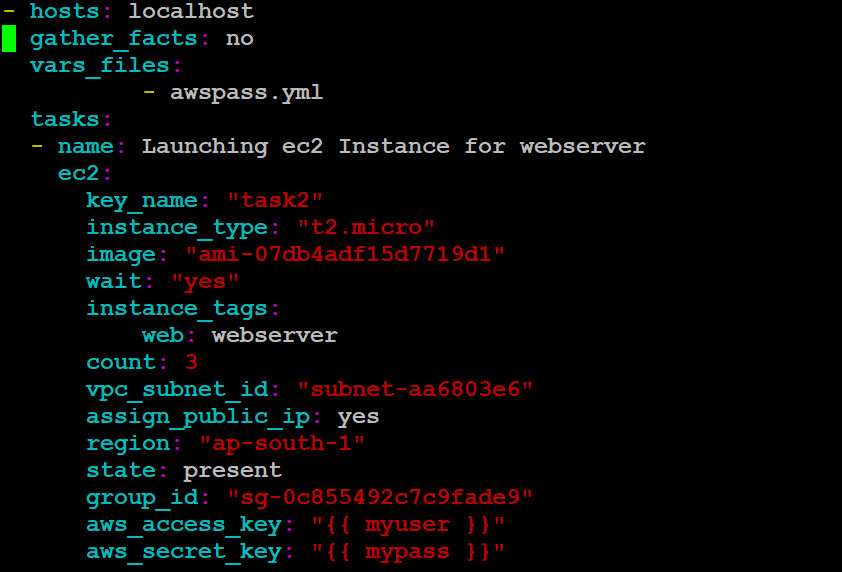Jan 20, 2020 Installing HAProxy Server. Open the host files and add the below lines in all 3 servers (HAproxy Load balancer, webserver1, webserver2) Now, you need to enable the HAproxy Logs to identify the problems for your future debugging. Now create a haproxy.conf in /etc/rsyslog.d/ folder to create log files. We have to provide the details of both the. Installing HAProxy 1.7. As a fast developing open source application HAProxy available for install in the Ubuntu default repositories might not be the latest release. To find out what version number is being offered through the official channels enter the following command. Sudo apt show haproxy.
I've been developing an App for most of the summer. It's using a few backend services so in production I use HAProxy in front of them.
- This is done with the following command: sudo apt-get install haproxy Once the installation completes, you can check to ensure HAProxy is working with the command: haproxy -v The above command should output the HAProxy release and copyright information ( Figure A). Testing HAProxy load balancing.
- May 10, 2021 The below yum command will install the necessary packages along with HAProxy. Yum install haproxy. The end of the output will look like this. Running transaction Installing: haproxy-1.5.18-9.el7.x8664 1/1 Verifying: haproxy-1.5.18-9.el7.x8664 1/1 Installed: haproxy.x8664 0:1.5.18-9.el7. Next, we have to verify that HAProxy starts every.
- #haproxy #setuphaproxy $haconfigurationHere i have shown step by step process how to setup HAproxy for 2 webservers.,please subscribe to my channel to get.
The latest service uses socket.io and Node.JS, I couldn't get it going because the local web server runs on a different port than the Node JS server (naturally). Due to the 'Same origin policy' socket.io JS needs to run on the same port (and host). So I installed HAProxy to mimic how everything would run in Prod.
<!-- more -->First thing first - Using the Cygwin setup.exe install GCC and G++
Download HaProxy http://haproxy.1wt.eu/
Next extract the HaProxy archive you downloaded, I was in my home directory (/home/courtney).
Go into the extracted folder
javascriptcd haproxy.x.y.z
Where .x.y.z was the version number. Now compile:
If no error occurred then install
Once installed you need a HaProxy Config file. I'm using 1.4 so docs are here: http://cbonte.github.com/haproxy-dconv/configuration-1.4.html . You should have a look here http://haproxy.1wt.eu/#docs to find your specific version of the docs.
Once you have a HaProxy config file fire up the process using:

javascript/usr/local/sbin/haproxy.exe -f haproxy.cfg
If like me you're using Node or whatever else (WebSockety) with HaProxy then a good place to start is http://stackoverflow.com/questions/4360221/haproxy-websocket-disconnection/4737648#4737648
This post is short and shody but its more of a reference for me in the future I'll probably have to do it again.

- Related Questions & Answers
Install Haproxy On Windows Server
- Selected Reading
This article is written to prepare high availability of a website. This can also be used by those who want their website to be available to their clients or users with high availability servers and to share between their servers. It is a free and open source application used as a TCP/HTTP load balancer which will distribute web traffic to multiple servers and improves performance and reliability of the web server.
Installation
Assume that load balancer HA proxy server IP address is http://192.167.57.150
HAproxy Server details
OS: Centos 6.7, IP Address: 192.168.57.150
WebServer1
OS: Centos 6.7, IP Address: 192.168.57.147
WebServer2
OS: Centos 6.7, IP Address: 192.168.57.148

We need to install the Apache on both the web servers, i.e., 192.168.57.151 and 192.168.57.152.
After installation, please access the Apache from web browser http://your-server-ip-address
Installing HAProxy Server
Open the host files and add the below lines in all 3 servers (HAproxy Load balancer, webserver1, webserver2)
Now, you need to enable the HAproxy Logs to identify the problems for your future debugging
Add these below lines to enable the logging
Installing Haproxy On Windows Xp
Now create a haproxy.conf in /etc/rsyslog.d/ folder to create log files
Add the below line to create the file
Restart the rsyslog services to update the changes we made
Configuring HAproxy global settings
We have to provide the details of both the web servers as front-end and back-end servers in case of failure.
We need to restart the services and make the changes effective.
To start the service automatically, use the below command
To check the autostart –
After the services, re-start so that, we can access the load balancer on http://192.168.87.150:/stats
For testing the HAproxy load balancer, we will have to create an index.html file in both web servers with below code.
Create an index.html file in the webserver1 with the bellow code.
Create an index.html file in webserver2 with the bellow code.
Now access the haproxy server IP http://192.168.57.150
By default, you can see the page of webserver 1
Webserver1
Now, test the load balance by going to webserver 1 and stop the HTTPd server
Then, access the haproxy server IP, http://192.168.57.150

Installing Haproxy On Windows
Now, you will see the web page of webserver2 automatically
Webserver2
To verify, you can access the HAproxy load balancer statistics page http://192.168.87.150/stats
HAproxy
Installing Haproxy On Windows Download
Conclusion
Installing Haproxy On Windows 7
After the configuration, you should be able to get your website without interruption even if one of the servers is down or unavailable. In the same way, we can also set up a HAproxy for Apache. You can also observe that, Webserver1 is not accessible or Down in the HAproxy load balancer statistics page by configuring the above as shown. You can also add any number of servers depending upon the requirement.
Comments are closed.